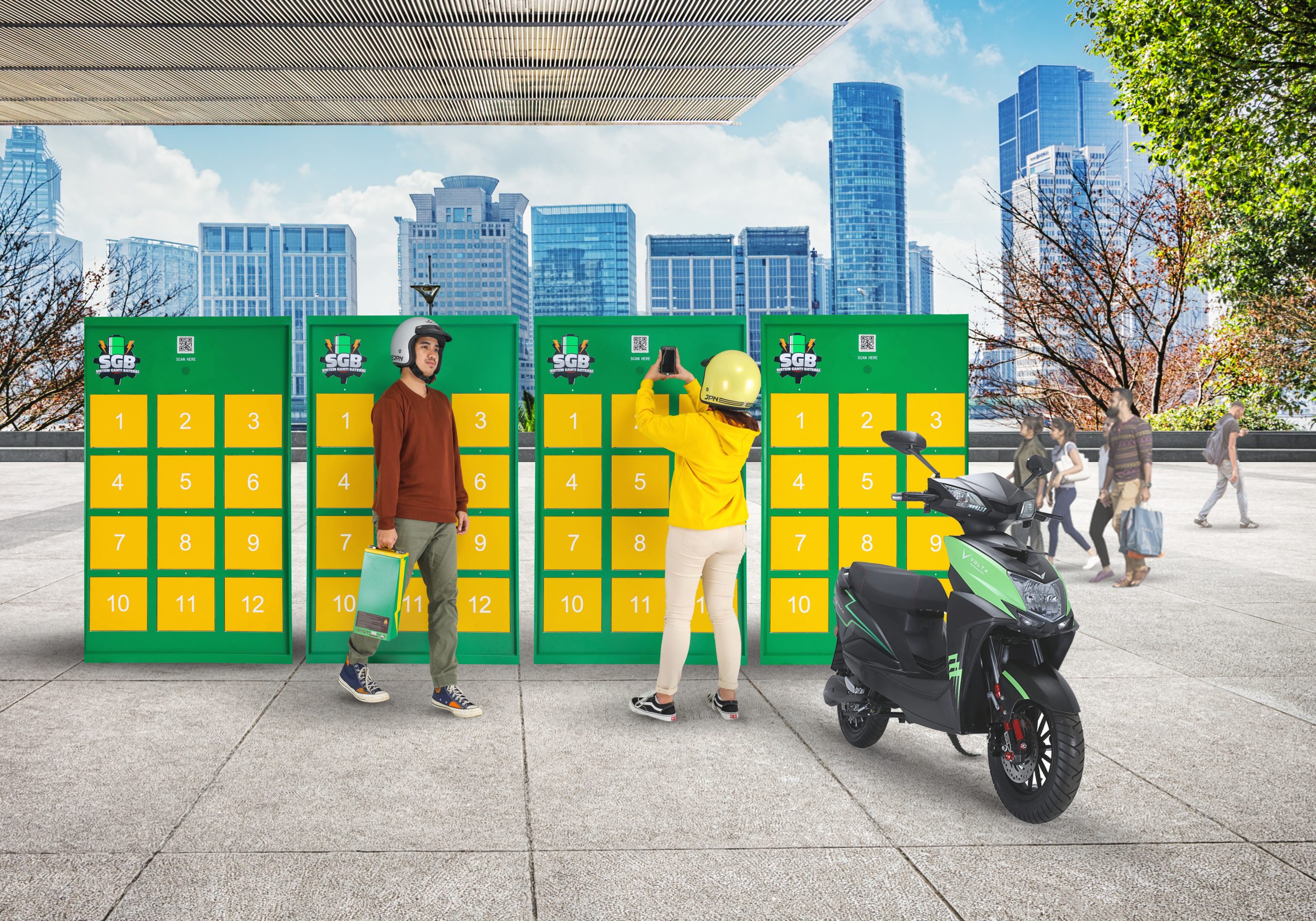A collaborative effort to reach Indonesia’s net-zero emissions target by 2060.
The transition from fossil-based energy to sustainable energy is increasingly being promoted in today’s green era. Indonesia has launched a strategy to net-zero emission by 2060, with readiness to enter the era of electric vehicles as one of its keys. As it is powered by electric motors, electric vehicles (EVs) don’t emit carbon dioxide emissions, one of the contributing causes of air pollution. Data shows that if 90% of the population switches to battery-powered electric motors by 2030, carbon emissions could be reduced by 11 billion tons by 2050. Therefore, the Government of Indonesia is targeting 2 million electric motorcycles usage by 2025.
“Indonesia is known as one of the countries with the highest motorcycle usage in Southeast Asia. Based on the statistics, around 85% of households in Indonesia own at least one motorcycle. Unfortunately, only a few of them are electric motorcycles. This situation drives Volta, a member of PT M Cash Integrasi Tbk (IDX: MCAS) and a subsidiary of PT NFC Indonesia Tbk (IDX: NFCX), to participate in improving air quality and health of the Indonesian society through environmentally friendly vehicles,” said Iwan Suryaputra, CEO of Volta Indonesia.
As a Semarang-based electric motorcycle manufacturer and a member of Microsoft Entrepreneurship for Positive Impacts, Volta strives to improve the driving experience of using electric motorcycles in an easy and fun way. One of its efforts includes presenting VoltaChat, a chatbot that can help riders or potential Volta customers to learn about various Volta products interactively, receive recommendations for Volta products that fit them the most by comparing specifications and prices, find battery replacements and charging stations closest to the rider’s position, and many more.
Supported by Azure OpenAI Service, this chatbot, accessible through https://voltaindonesia.com/chat, allows users to use everyday language in asking questions or recommendations. The service saves time and increases the customer’s comfort level in getting to know Volta and gaining in-depth knowledge about the company.
Suryandy Jahja, Managing Director of PT M Cash Integrasi Tbk said, “Azure OpenAI Service doesn’t only help customers and potential customers, but also helps increasing the productivity of Volta’s internal team. Through the interaction data that we learn, process, and protect securely in Volta’s Azure cloud ecosystem, we can identify our external audiences better. For examples, we could understand the things they want to know most about Volta, charging locations that are being searched the most, and so on. With that, we look forward to growing our business and supporting the riders to go further and faster with Volta.”
Volta, which now has reached local content requirements (TKDN) of more than 40 percent, offers two types of electric vehicles: 2-wheeled and 3-wheeled, with the 401, Virgo, and Mandala models as its leading products. Volta’s electric motors are equipped with modern features such as an LED digital speedometer, acceleration button, parking button for added comfort while driving, and a LifePO4 battery slot that can be upgraded up to 180 km. Additionally, each Volta vehicle is also equipped with an Internet of Things (IoT) system integrated with the application. This allows drivers to manage their vehicles and monitor their battery in real-time, thus offering a quality driving experience.
“As a way of utilizing the advances of Generative AI technology, we are planning to integrate the capabilities of Azure OpenAI Service into our IoT system. Through this integration, various vehicle elements such as the vehicle kilometers traveled (VKT) status and the remaining battery will be analyzed more quickly, providing more precise and accurate insights for drivers. This will hopefully provide an easier and more enjoyable electric motorcycle riding experience,” Jahja continued.
Volta’s efforts in increasing the penetration of electric vehicles in Indonesia have never been separated from its collaboration with other industry players, such as with the state-owned electricity company PLN. Through Volta’s collaboration with PLN, 300 Volta Battery Swap (SGB) stations spread across Java, Bali, and Sumatra, are always ready to charge Volta riders’ batteries. In addition to SGB, Volta also presents fast-charging capability for lithium batteries at Volta charging stations, assuring drivers that they will never run out of battery power.
Aside from technology, Volta Indonesia takes great pride in the company’s significant increase in productivity as well as the welfare of the online motorbike taxi (ojol) driver community, which is made possible through its Semolis program. Semolis is an Electric Motorbike Rental program that allows ojol drivers to rent an electric motorbike on a daily basis, and later own the motorbike after achieving a certain milestone. This provides an opportunity to empower ojol drivers without having them worrying about lack of capital, while also contributing to reducing carbon emissions in Indonesia. Ojol drivers claim they can save up to 60% of daily expenses because they no longer need to deal with high fuel prices and vehicle maintenance costs.
Fiki Setiyono, Azure Business Group Lead Microsoft Indonesia said, “In line with Microsoft’s commitment to becoming carbon negative by 2030, we welcome Volta’s commitment to supporting 100% green vehicles in Indonesia. We believe Volta’s innovation can provide not only a positive impact on the environment but also grow the Indonesian green economy. Let’s continue to collaborate to achieve a clean and sustainable Indonesia.”
As a business, Microsoft’s overall emissions declined by 0.5% in 2022. This in part is a result of a reduction in Microsoft’s direct operational (Scope 1 and 2) emissions by 22.7%. At Microsoft, Scope 1 and 2 emissions account for less than 4% of total emissions, while indirect emissions, or Scope 3, account for more than 96%. The company’s Scope 3 reported emissions increased slightly in 2022, by 0.5%, despite a 25% increase in purchased goods and services due to business growth. The more positive outcomes in 2022 are the result of improvements in Microsoft’s operations, real-time device telemetry-based measurement, renewable energy investments, sustainable aviation fuel (SAF) purchases, and procurement of unbundled renewable energy certificates (RECs).
###

